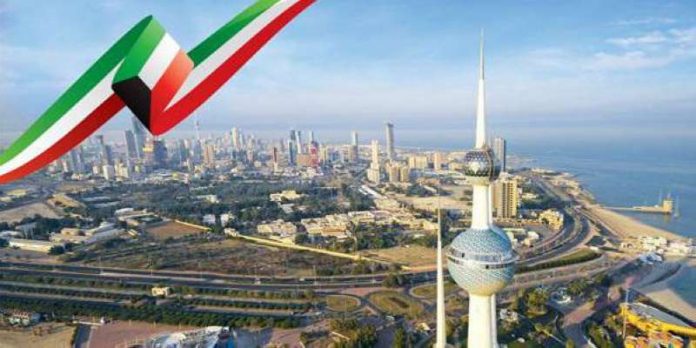A reading of the analytical comparison presented by the Central Bank of Kuwait to the Council of Ministers on the components of the recovery of the Kuwaiti economy in light of the structural imbalances showed that Kuwait came according to the index of the ability to absorb economic shocks, ranked 108th globally after Saudi Arabia, which ranked 92 The UAE is ranked 102, Al-Rai daily reported.
Kuwait scored 50.65 points on basics of recovery, which is lower than the average of the countries of the Middle East and North Africa (54.98 points), and also less than the global average (60.28 points).
The axis of the ability to absorb economic shocks includes 6 main indicators, including 17 sub-indicators that constitute the extent to which the state and its economy can withstand shocks, as follows:
1. Industry and Sector Diversity:
One of the factors that affect the absorptive capacity of a country is the extent of its dependence on weak economic and industrial sectors that are vulnerable to shocks.
In this indicator, the State of Kuwait scored a very low score, about 3.04 points, and ranked last in the world ranked 122 out of 122 countries covered by the index, compared to 113th for Saudi Arabia and 120th for the UAE.
This result appears natural in light of the Kuwaiti economy’s dependence mainly on the oil resource, as the oil sector contributed about 45 percent of the gross domestic product at current prices.
2. Debt Levels:
This indicator assesses the sustainability of a country’s financial resources, which in turn will affect the ability of decision-makers to issue new debt.
Globally, with the global economy contracting by 3.3 percent for 2020, as reported by the International Monetary Fund in April 2021, countries with high levels of debt have less respite to absorb the shock and will be more vulnerable as the recession continues and financial conditions tighten.
In his paper, which he presented to the Council of Ministers, the Central Bank pointed out that the past years witnessed the accumulation of debts across countries due to the continued low-interest rates that encourage borrowing, explaining that if companies and families are affected, the default may lead to a financial crisis, while countries with levels of High debt is more at risk of prolonged stagnation.
The Central Bank stated that Kuwait ranked first in the world according to this indicator, ahead of Saudi Arabia, which ranked third in the world, and the UAE, which ranked 17th globally, noting that one of the reasons for Kuwait’s progress in this indicator is the low levels of external debt as a percentage of output. The gross domestic product compared to other countries, the strong sovereign credit rating of Kuwait, and the relatively low inflation rates, as these factors represent strengths of the national economy’s ability to withstand crises and recover from them faster.
3. Labor Market Conditions:
This indicator assesses the conditions and strength of the labor market before the crisis of the Corona pandemic.
Kuwait and Saudi Arabia ranked 48th globally on this indicator, while the UAE ranked 15th globally, where the Central Bank stressed that the low unemployment rate in Kuwait constitutes an element of strength, as Kuwait ranked among the top ten countries in the world according to the unemployment rate index.
4, International Markets:
This indicator assesses the extent to which countries depend on international markets (trade and investment), as external demand often declines or dwindles in times of crisis, which weakens the country’s ability to absorb the crisis and then recover from it.
This indicator includes two components, trade openness, which is measured by the ratio of the country’s total foreign trade volume (import and export) to that country’s GDP, and investment openness, which is measured by the ratio of total direct investment flows (inward and outward) to GDP.
According to the Central Bank, according to this indicator, Kuwait ranked 62nd globally (89th globally for the trade openness index and 28th globally for the investment openness index), while Saudi Arabia ranked 46th globally and the UAE ranked 110th globally.
5. Social Flexibility:
This indicator assesses the degree of social stability of a country in terms of the degree of equality in the distribution of income, while the Corona pandemic contributes to exacerbating income inequality and increasing the spread of poverty because it affects more people with lower incomes.
The Central Bank’s analytical reading confirmed that countries with higher levels of income inequality will be the least able to absorb the economic shock caused by the epidemic, and will need to provide more income support for their residents, noting that according to the Social Resilience Index, Kuwait and Saudi Arabia came in 95th globally, while the UAE ranked 57th globally.
6. Food security:
This indicator assesses the ability of countries to maintain their food consumption in times of crisis. Food security vulnerabilities represent an additional cause of risk during a pandemic, particularly in poor countries, where food supply chains may not be as resilient in times of crisis.
According to this indicator, Kuwait ranked 119 globally, which is a very late rank (ranked 119 globally according to the sub-index, the percentage of food self-sufficiency), while Saudi Arabia and the UAE ranked 117 and 120 globally, respectively. To a large degree on imports to meet their needs of food commodities.
While the “Central” paper confirmed that the international trade movement at the global level was significantly affected by the repercussions of the Corona pandemic, as a result of the closure of factories and the suspension of many international shipping companies as precautionary measures to contribute to limiting the spread of the virus, which upset global supply chains, it indicated that expectations The World Trade Organization (WTO) issued in March 2021 indicates an increase in the volume of global merchandise trade by 8 percent in 2021 after declining by about 5.3 percent in 2020, to continue its recovery after the collapse caused by the pandemic.

















